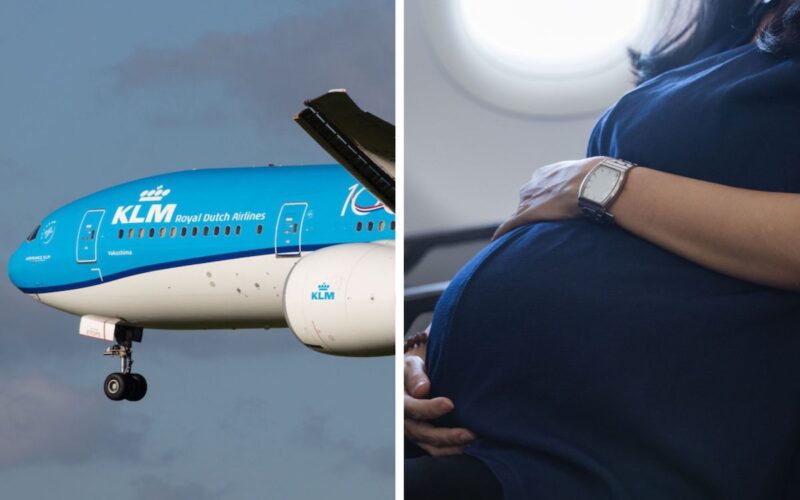A KLM flight carried an unexpected load when one of its passengers gave birth mid-air.
KLM Flight 588 was bound for Amsterdam’s Schiphol Airport (AMS) from Murtala Muhammed International Airport (LOS) in Lagos, Nigeria on June 19, 2023.
While the Boeing 777-200 aircraft (with registration PH-BQI) was flying over the Mediterranean Sea, one of its passengers suddenly went into labor and gave birth in one of the aircraft’s galleys with the assistance of the cabin crew.
The pilots of the flight then made the decision to divert the flight to Barcelona, where it landed safely.
“I can confirm that a baby was born on the KL 588 on its way from Lagos to Amsterdam,” KLM spokesperson Marjan Rozemeijer told various media outlets. “Due to privacy reasons I cannot make any further statements on the birth.”
A passenger on board the flight expressed his appreciation of how the airline crew and emergency crew in Barcelona’s El Prat airport delivered the baby and handled the emergency.
The flight later departed for its original destination, AMS airport, where it safely arrived more than two hours later than expected.
What happens when a baby is born on a commercial flight?
Births on commercial flights are rare because most airlines do not allow pregnant passengers 36 weeks and above to board.
KLM’s pregnancy regulations are the same: the airline said it discourages pregnant passengers beyond 36 weeks from flying. For pregnant fliers, the airline also recommends getting medical clearance from doctors, but it is not a requirement to submit this prior to flying.
If someone goes into labor during a flight, cabin crew have first aid medical training and will provide assistance. The crew will also try to find a physician or someone in the medical profession to help with the delivery.
But what happens to the baby’s citizenship? Well, it’s both literally and figuratively up in the air. It depends on the country / airspace when the birth took place, and the airline.
The 1944 Convention on International Civil Aviation established that all aircraft have the nationality of the state in which they are registered, and the law of the aircraft’s nationality is applicable on the aircraft.
The United Nations’ 1961 Convention on the Reduction of Statelessness states that a birth on a ship or aircraft in international waters or airspace shall be treated as a birth in the country of the ship or aircraft’s registration.
The baby may also receive some extra perks, depending on the airline. In 2016, a woman gave birth to a baby on a Cebu Pacific flight from Dubai International Airport (DXB) to Manila International Airport (MNL). The airline decided to give the baby one million airline points “for life”, with no expiration date and able to be shared among the baby’s family.

